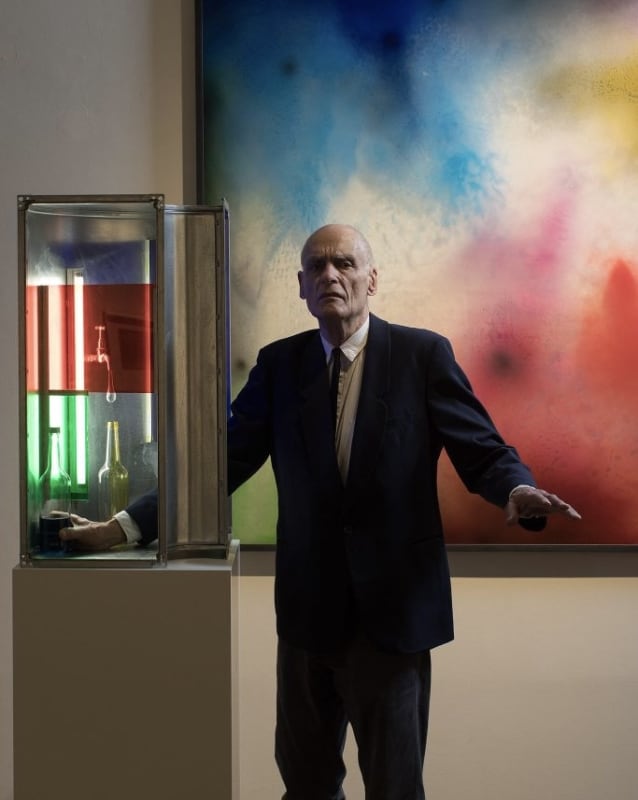Gerd Rohling
Gerd Rohling (b. 1946, Krefeld, Germany) is a Berlin-based artist whose practice spans painting, sculpture, installation, and found-object assemblage. After moving to West Berlin in 1971, Rohling studied graphic arts and painting at the Hochschule der Künste, where he became a master student under Karl Horst Hödicke. He co-founded the influential self-organized artist group and project space 1/61 in Kreuzberg in 1979, aligning himself with Berlin’s independent scene at the height of the city’s postwar cultural resurgence.
Rohling's early work was associated with the expressive tendencies of the Neue Wilde movement, though from the 1980s onward he increasingly focused on object art, developing a singular language from detritus and everyday materials such as plastic waste, cardboard, and scrap metal. His works investigate transformation, memory, and semantic shift—often reimagining discarded materials as autonomous sculptural forms or painterly tableaux. Whether converting bottle caps into relic-like vessels or stove flaps into luminous abstractions, his practice blends trash aesthetics with poetic formalism.
The artist’s longstanding interest in ecological issues and material histories culminated in works like Wasser und Wein (Water and Wine), an expansive installation first presented at the Venice Biennale in 2001 and later at Hamburger Bahnhof, Berlin. Here, Rohling transformed scavenged plastic containers into glass-like vessels, simultaneously critiquing environmental degradation and interrogating the shifting ontology of the art object. Through such pieces, Rohling combines conceptual rigor with a tactile, almost alchemical process of meaning-making rooted in collection and reuse.
Rohling’s works have been exhibited extensively across Europe, the Americas, Africa, and Asia, often in the context of residencies and biennials. Notable institutions include Hamburger Bahnhof, Berlin; PS1, New York; and the Weserburg Museum, Bremen. He is the recipient of the Villa Romana Prize (1980), the Karl-Schmidt-Rottluff Grant (1982–84), and the Will-Grohmann Prize (1990).
Portrait by Oliver Mark


